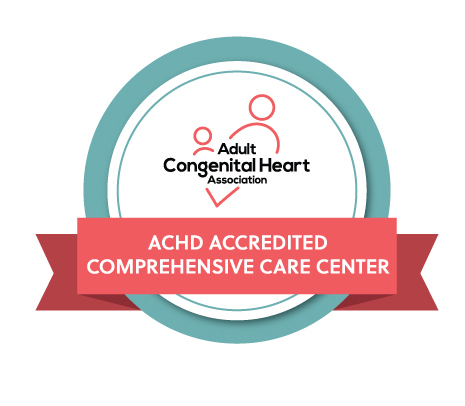The Herma Heart Institute at Children’s Wisconsin, in conjunction with Froedtert & the Medical College of Wisconsin , offers the state’s largest Adult Congenital Heart Disease Program (ACHD). As an ACHD Comprehensive Care Center, accredited by the Adult Congenital Heart Association, we provide specialized care that meets the unique needs of adults with CHD and helps them live life to its fullest.
Condition
Adult Congenital Heart Disease Program
Specialized, lifelong care for adults with congenital heart disease
People born with heart defects (congenital) need special care that is different than what you might get from a general adult cardiologist or a pediatric cardiologist.
The Adult Congenital Heart Disease (ACHD) Program at the Herma Heart Institute is here to support you in every stage of your heart journey. We care for adult patients of all ages. We see young adults just starting their transition from pediatric care to seniors managing lifelong congenital heart defects (CHD). Whether you’re 18 or 80, our experts will support and care for your needs.





